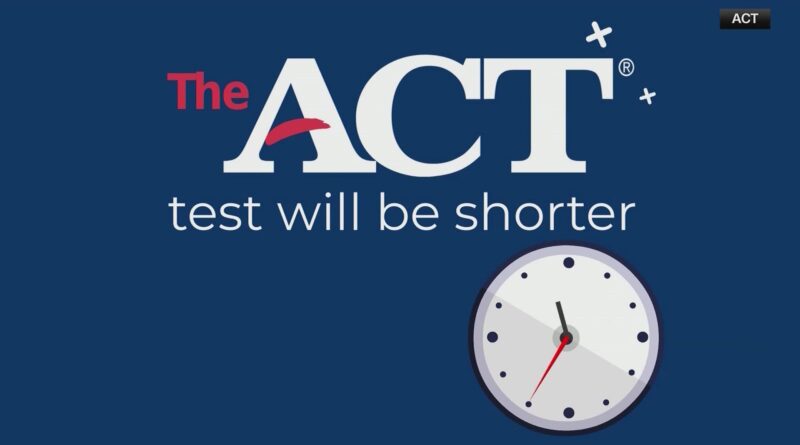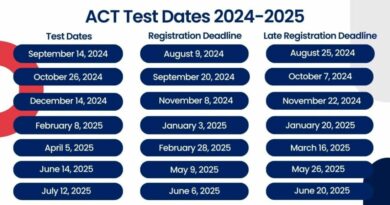Major Changes to the ACT: What Students Need to Know
Exciting updates are on the horizon for the ACT! In July 2024, the ACT CEO announced significant changes set to roll out starting spring 2025. If you’re preparing for this crucial exam, here’s what you need to know about the upcoming modifications:
Key Changes to the ACT
- Implementation Timeline: Discover when the new format will be available.
- Shortened Exam Duration: Learn how the test will be streamlined, including revised reading passages.
- Optional Sections: Find out which parts of the exam are becoming optional.
- Introduction of Experimental Questions: Understand how these questions will be integrated into the test.
Timeline for ACT Changes (2024-2026)
| Date | Changes to the ACT |
| Winter 2023 – Spring 2024 | Choice between digital or paper ACT; no changes |
| Spring 2025 | New format for digital ACT tests |
| Fall 2025* | New format for paper-and-pencil ACT tests |
| Spring 2026 | New format for school-day ACT tests |
*Note: The rollout for paper tests is based on predictions, as official dates are still pending.
Overview of Major ACT Changes
As we approach spring 2025, here are the four significant modifications to the ACT:
- Optional Science Section: The Science section will now be optional, reducing the required sections from four to three (Math, English, Reading).
- Experimental Questions: These will be mixed into every section, making it harder to distinguish which questions count towards your score.
- Shortened Test Duration: The ACT will shrink from about 3 hours to just over 2 hours, providing a more efficient testing experience.
- Digital and Paper Format Options: Students will have the flexibility to choose between a digital or traditional paper format.
Detailed Breakdown of Changes
1. Science Section Becomes Optional
The ACT Science section will no longer be mandatory, allowing students to focus on Math, English, and Reading. This change caters to those who may feel less confident in scientific reasoning.
2. Integration of Experimental Questions
To enhance the exam’s quality, experimental questions will now be included in each section, rather than existing as a separate part of the test. This means students will need to approach every question with equal seriousness.
3. Exam Time Reduction
The total number of questions will decrease, resulting in a shorter testing time. Students will appreciate the extra time to consider each question thoughtfully:
- Current ACT: 175 minutes, 215 questions
- New ACT: 125 minutes, 171 questions
4. Format Flexibility
With both digital and paper options available, students can choose the format that best suits their testing style. The digital format aims to provide enhanced pacing and efficiency, appealing to tech-savvy students.
Changes to Individual ACT Sections
ACT English Section
- Current: 75 questions in 45 minutes
- New: 50 questions in 35 minutes
Students will have more time per question, enhancing their ability to answer thoughtfully.
ACT Math Section
- Current: 60 questions in 60 minutes
- New: 45 questions in 50 minutes
Similar to the English section, the new format allows for more thoughtful responses.
ACT Reading Section
- Current: 40 questions in 35 minutes
- New: 36 questions in 40 minutes
This section will also see a gain in time per question, allowing for a deeper comprehension of the material.
Science Section
- Current: 40 questions in 35 minutes (required)
- New: 40 questions in 40 minutes (optional)
Students who choose to take the Science section will benefit from additional time to navigate the questions.
Preparing for the New ACT
With these significant changes, it’s essential to tailor your study strategy. Consider the following tips:
- Familiarize Yourself with the Format: Whether you choose digital or paper, practice with the corresponding format.
- Adapt Your Study Materials: Use practice tests that reflect the new structure and question types to ensure you’re fully prepared.
Conclusion
The ACT is evolving to better meet the needs of students. With optional sections, a shorter testing duration, and the flexibility of digital or paper formats, the changes aim to enhance the overall testing experience. Stay informed, prepare accordingly, and embrace the opportunities these modifications present.



